Patagonia chief speaks out
on business and environmental stewardship in his newest book...
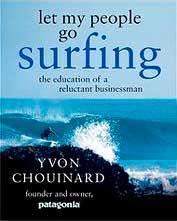 The environmentalist picking up "Let My People Go Surfing," the new memoir by Patagonia founder Yvon Chouinard, may feel inundated with growth targets and marketing strategies, in the way the vice president might be with Chouinard's passion for conservation. But conscientiousness and business savvy each tell half of this story. Chouinard and Patagonia say they're "committed to the core." Look there and you find both green values and a dedication to their customer base, the adventure sports junkies-- "dirt bags" as Chouinard likes to say, counting himself-- who live to climb mountains and surf. "Let My People Go Surfing" is his account of balancing idealism with growing a $200 million business, all while giving himself an excuse to get out in the fresh air.
The environmentalist picking up "Let My People Go Surfing," the new memoir by Patagonia founder Yvon Chouinard, may feel inundated with growth targets and marketing strategies, in the way the vice president might be with Chouinard's passion for conservation. But conscientiousness and business savvy each tell half of this story. Chouinard and Patagonia say they're "committed to the core." Look there and you find both green values and a dedication to their customer base, the adventure sports junkies-- "dirt bags" as Chouinard likes to say, counting himself-- who live to climb mountains and surf. "Let My People Go Surfing" is his account of balancing idealism with growing a $200 million business, all while giving himself an excuse to get out in the fresh air.Chouinard is clear from the first few lines where his heart lies: "I've been a businessman for almost fifty years. It's as difficult for me to say those words as it is for someone to admit being an alcoholic or a lawyer. I've never respected the profession." Still, he thinks like a businessman, even in those formative years. He chose the name Patagonia partly because of its exotic imagery and partly because the word is easily pronounceable in many languages—a requirement only if your intention is to export your brand abroad.
Chouinard, in truth, is every bit the CEO, by way of Earnest Hemingway. He cheerfully recounts achievements, such as converting his apparel line to organic cotton in the mid-90s, without shying from his shortcomings, such instituting layoffs during the recession early in that same decade. He takes advice, in equal measure, from modern management theory and Zen. Scattered throughout the book are anecdotes where Chouinard scales peaks in Yosemite, kayaks in the North Atlantic, surfs in Ventura and fly fishes in Tierra Del Fuego. Whether in the boardroom or on the surfboard, he conveys the tone of “dirt bag,” driving down a road with the reflection of a conquered mountain in his rear view mirror.
“Let My People Go Surfing” begins as an autobiography. Chouinard becomes increasingly captivated with nature as a kid growing up in Southern California. Soon after learning to climb, he set out to improve the equipment of the day. He bought an anvil and materials and began turning out handcrafted carabiners and pitons. It was in those early days that he found the design aesthetic that he carries with him today: Good design strives for elegance and durability and consists of nothing superfluous. Whether it’s an ice ax or a fleece pullover, “complexity is often a sure sign the functional needs have not been met,” he says.
If Patagonia’s product design is simple, its mission statement, by contrast, is multi-layered and nuanced. The first goal: to make a great product. The second goal is to do no environmental harm. Chouinard admits the second goal is impossible in absolute terms, but he has pushed Patagonia on this point. An ad from the company in 2004 states: “Fundamentally, businesses are responsible to their resource base. Without a healthy environment, there are no shareholders, no employees, no customers and no business.” Chouinard details what he says are the “real costs” of items ranging from hamburgers to his own jackets and shirts. He goes as far as to say, “the most responsible way for a consumer and a good citizen to buy clothes is to buy used clothing.” By staying above the fray of fashion trends, this apparent economic kiss of death is transformed into an opportunity. Some of Patagonia’s vintage designs from the 1980s sell today for thousands of dollars, says Chouinard.
In fact, he says that every time he did what was right for the environment, he has made a profit. It’s a fact that he would like to impart on other business owners and executives, who make up half of the target audience of “Let My People Go Surfing.” Patagonia is an acknowledged leader of corporate innovation—from its environmental stance to its early implementation of child day care at the office. The title of the book is an illusion to Chouinard’s role as prophet of flextime. As long as the work gets done, he posits, why shouldn’t you hit the waves when they’re breaking right?
The other half of the book’s audience is the consumer. One of the main reasons Patagonia resisted explosive growth followed by selling-out to the highest bidder, Chouinard says, is so the company could be a vehicle for continued environmental activism. The corporation donates one percent of net sales to causes, encourages employees who are involved with conservation issues, and even holds seminars to train and nurture grassroots action. But while productive, these efforts are small compared to educating consumers, Chouinard says: “Ninety percent of what we buy in the mall ends up in the dump within sixty to ninety days. It’s no wonder we are no longer called citizens but consumers. A consumer is a good name for us, and our politicians and corporate leaders are reflections of whom we’ve become.”
It’s possible, though, to have it all—a superior product that’s ecologically responsible—if you believe Chouinard. Look at Patagonia, where you find threads with soul. Rugged threads with soul, he would no doubt add.
By Gregory Yanick - New York
Greener Magazine Staff Writer
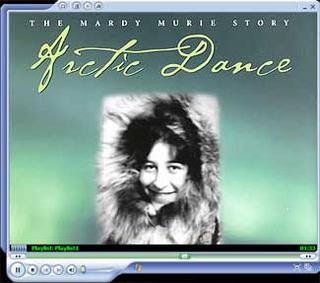 Partnerships in environmental activism between corporate good citizens like Patagonia, government and private individuals can have dramatic affects for the future of our planet. Margaret "Mardy" Murie who once said, "The United States of America is not so rich that she can afford to let these wildernesses pass by, or not so poor she cannot afford to protect them." To advise your representatives in government of your commitment to the Endangered Species Act, sign the
Partnerships in environmental activism between corporate good citizens like Patagonia, government and private individuals can have dramatic affects for the future of our planet. Margaret "Mardy" Murie who once said, "The United States of America is not so rich that she can afford to let these wildernesses pass by, or not so poor she cannot afford to protect them." To advise your representatives in government of your commitment to the Endangered Species Act, sign theLegacy Pledge.
Mardi devoted her life to the preservation of our nation's wild lands, 1902-2003. A new film examines the rich environmental legacy of this remarkable woman



10:05 PM






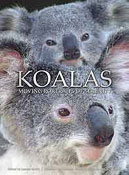
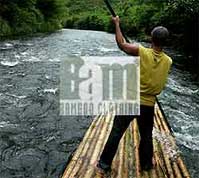
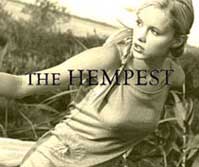
<< Home